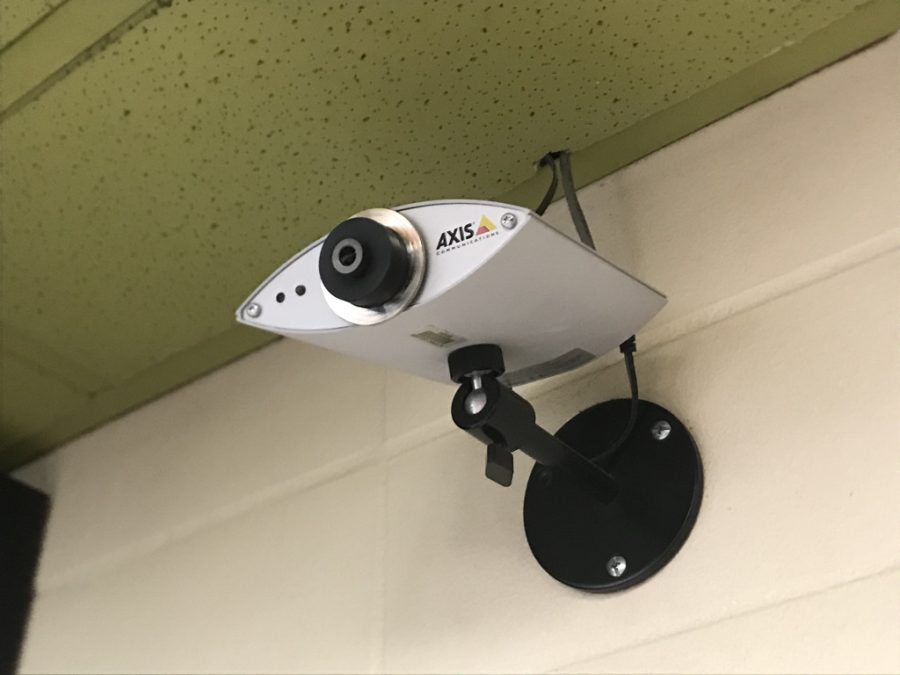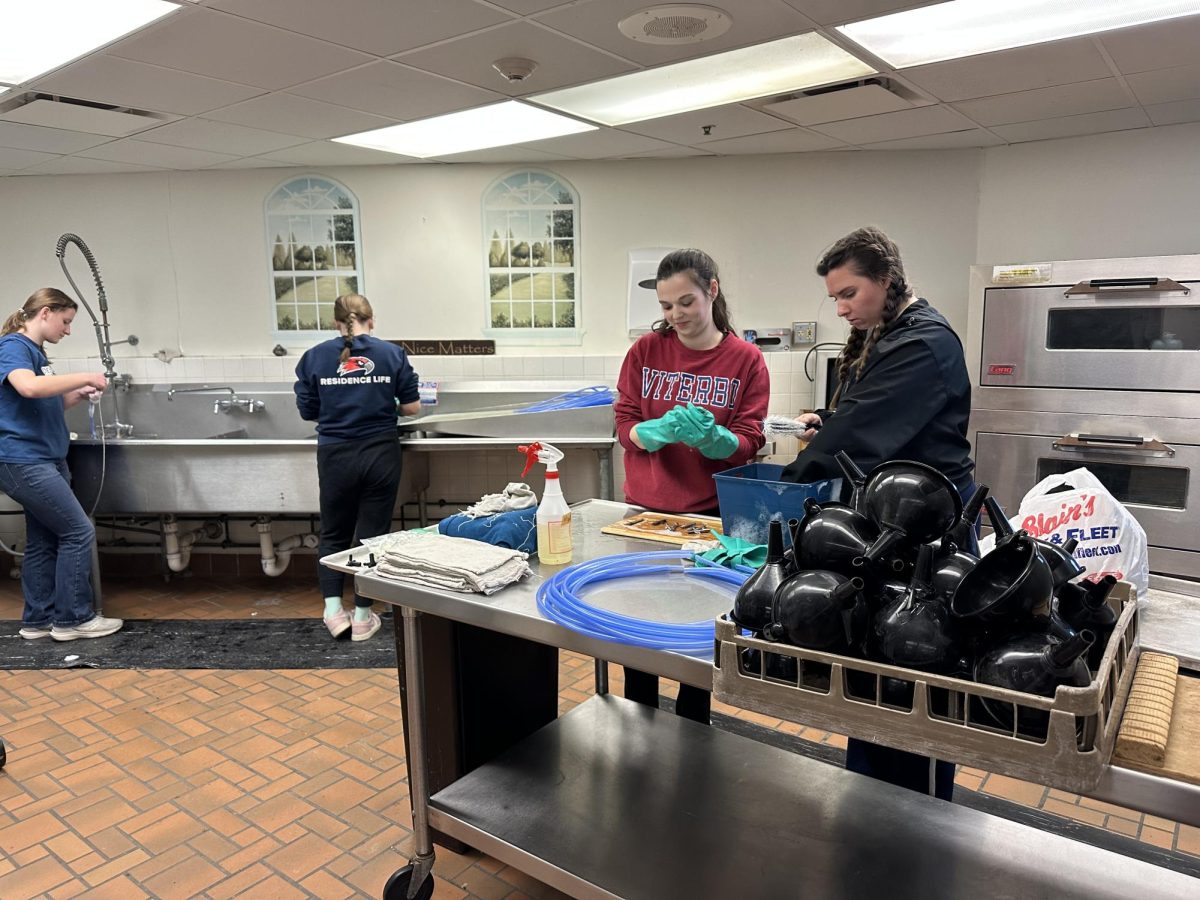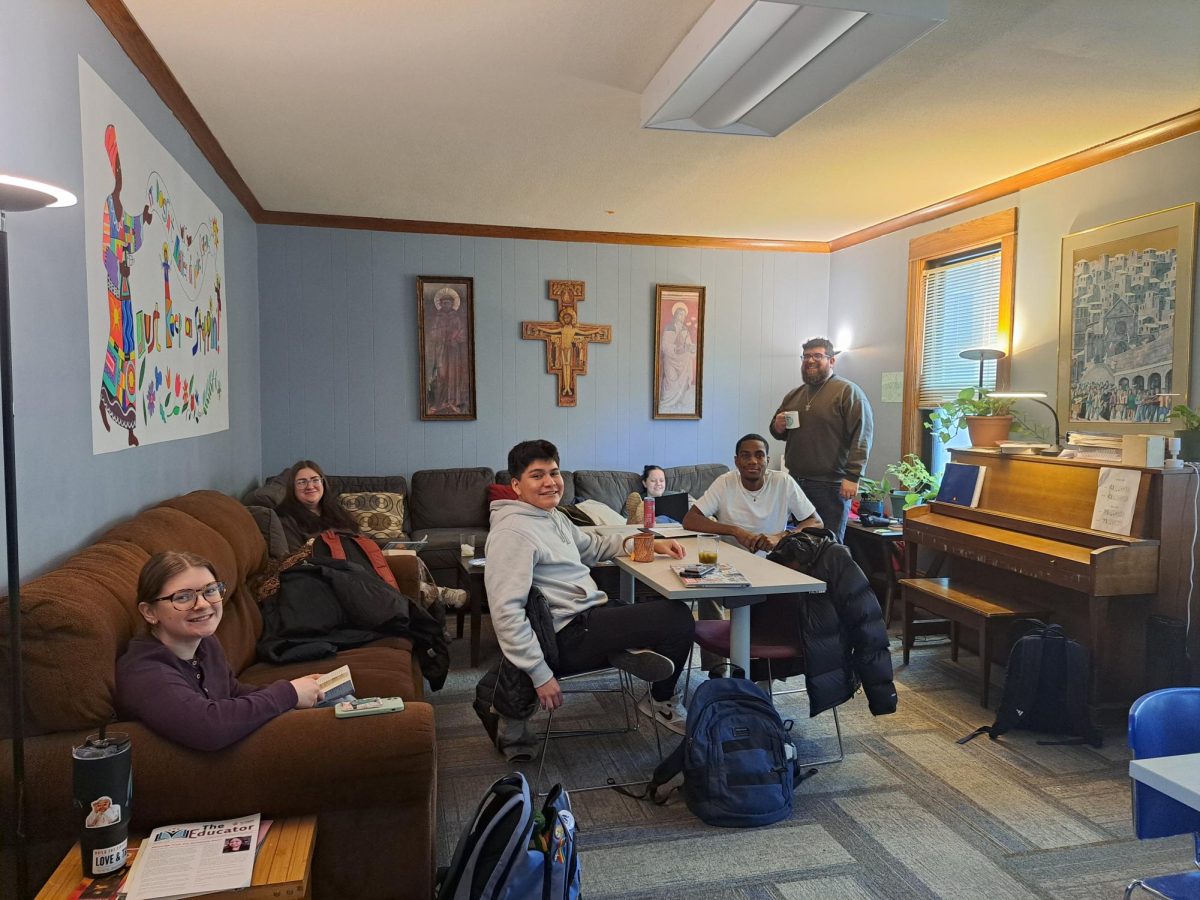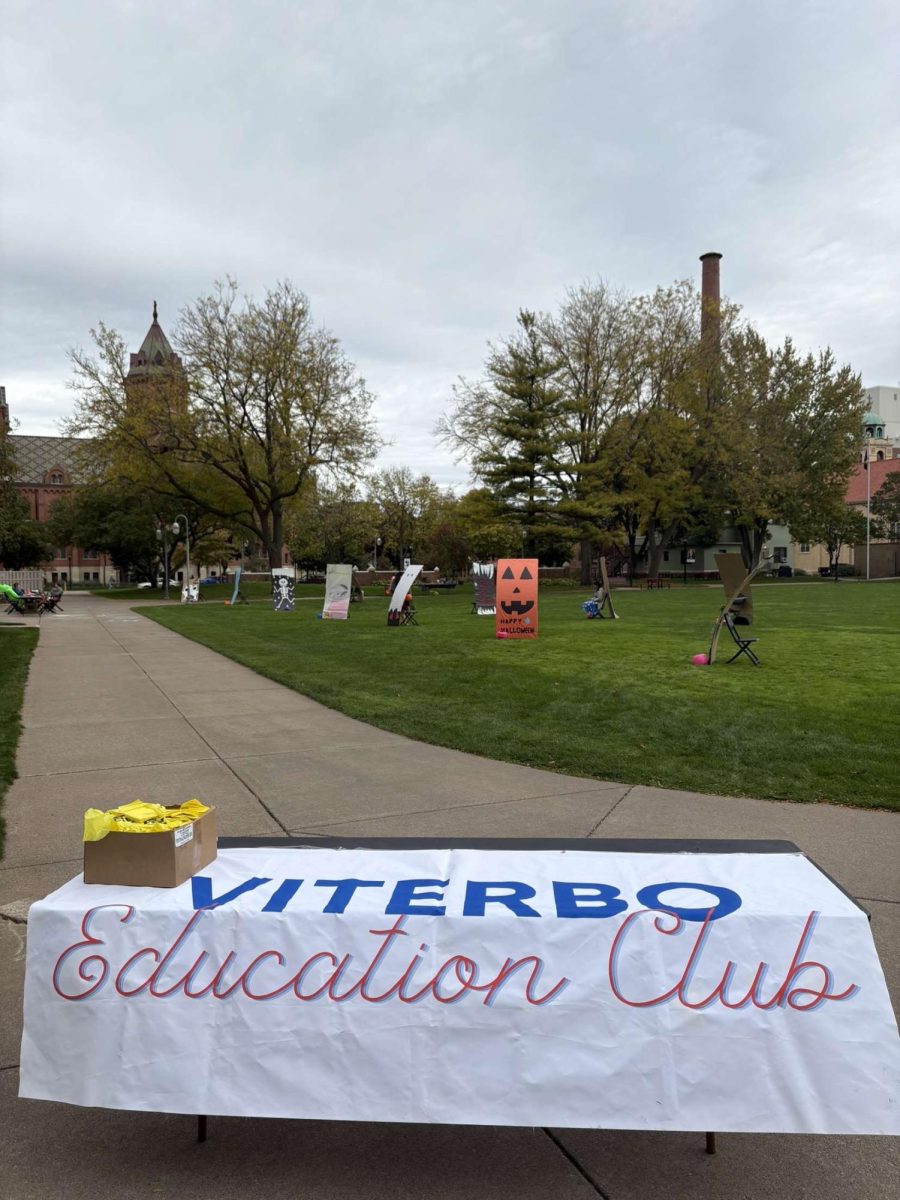Since the very first day of classes this past January, Viterbo University has seen an unprecedented amount of hate speech. As a result, many BIPOC and LGBTQ+ students have begun to feel frightened on campus—in part due to a lack of safety. The hateful events have been the catalyst to a handful of listening sessions between disgruntled students and Viterbo’s administrative team. While the university continues to seek the identities of perpetrators, they made it clear that safety is of the utmost importance moving forward.
The events that are currently being investigated occurred within on-campus residence halls. These buildings have security measures to identify who enters and exits, but aside from occasional rounds by resident assistants and security personnel, the internal affairs are shrouded in mystery. No cameras exist within the halls which, while awarding students with freedom, allows for perpetrators to remain anonymous. This, however, will soon be changing.
Kirsten Gabriel, Assistant Vice President of Student Affairs, shared some action steps that Viterbo is taking in the nearby future. According to Gabriel, the university has plans to improve their security tenfold, adding security cameras inside the residence halls–which will only be monitored if illicit acts are performed–and increasing the hours of some part-time campus safety workers. Gabriel shared, “Student safety is always a priority for us, so if students have requests by way of increased security measures, those are things we’ll hear.”
Gabriel also mentioned that “the pendulum swing is everything” regarding how many precautions exist on campus. The COVID-19 pandemic has added many new restrictions to Viterbo University, increasing the responsibilities of campus security and aggravating some students. To some, these increased security measures feel like a breach of privacy. However, following moments of hate speech, increased security feels to many like the most appropriate response. Gabriel and her fellow faculty members are constantly keeping an eye on this “pendulum” to improve the campus environment. Ultimately, the university was persuaded to increase security measures due to the demands of students, especially at student and faculty listening sessions.
Following a student-led walkout on March 11, Viterbo hosted several listening sessions to hear directly from students, inviting them to share their fears, beliefs, and hopes as the university progresses forward. According to Gabriel, these are always held with the intent of improving the university for the sake of all students. “Our goal with all the listening sessions is to be responsive,” Gabriel shared, adding, “We listen, we respond. I know some people could see that as reactionary… but it’s also a response.”
While the university works on installing new security measures, Gabriel hopes that students will utilize the resources Viterbo currently has. One example is the Code Blue Emergency Phones placed across campus. The nine phones, each made visible with a bright blue light atop them, automatically connect the caller with Viterbo’s on-duty security officer. The phones also have individual tracking so the security team can aptly tend to the situation. Gabriel also recommended that students use “safe walk.” By calling Viterbo’s security team at 608-796-3911, students can request an officer to escort them safely to where they are headed, whether it be a calm walk or a ride aboard the team’s buggy. If a student feels unsafe walking home from a sporting event, a late-night study session, or any other nighttime activity, campus safety will ensure they have a safe trek home.
Gabriel also encourages students to utilize “Viterbo Speaks Up” which can be found with a simple web search. The form allows students to submit any concern, anonymously or not, to any campus department they would like. These submissions greatly help the campus move forward with new protocol, alerting them to problems and accelerating the processes that make Viterbo safer and more hospitable for everyone.
It appears Viterbo is working hard to make students feel safe, especially considering recent events. While some might view the progress as slow, it is progress, nonetheless. The campus leaders are listening and adapting, attempting to transform Viterbo into a university that is preventative instead of just reactive.




